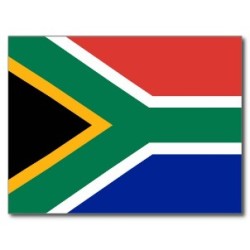South African Government Proposes Internet Gambling Ban

Following a study which revealed a high percentage of problem gamblers inside South Africa, the country’s government is now considering introducing a ban on a wide range of gambling and betting activities, including Internet gaming. Currently, the proposal is being debated by the National Gambling Policy Council (NGPC), which represents the interests of both the national and provincial governments, as well as the Department of Trade and Industry.
After the NGPC discussion is concluded, a draft policy will subsequently be sent to the Cabinet where it will await approval, after which public comment and alternative suggestions on the matter will be considered.
Which Gambling Activities To Be Affected?
In addition to abolishing all forms of online gambling, South Africa’s Department of Trade and Industry (DTI) is looking to introduce a framework regulating the horse racing industry by tying operators with the issuing of licenses. The body will also seek to curtail the number of electronic bingo terminals (EBTs) on offer in the country, which have spread like wildfire throughout South Africa’s nine provinces, despite there being no national policy on the machines.
Reasons For The Ban
The discussion to reign in South Africa’s gambling industry, and abolish all forms of online gambling, comes about after DTI’s Deputy Director-General Zodwa Ntuli and Chief Director MacDonald Netshitenzh lamented the ease in which South Africans could access gambling products. Consequently, they have highlighted the need for stringent controls to be enforced making accessibility much more difficult for consumers, which in the case of online gambling ban is “based on the view that the government had the capability to enforce regulations of the industry,” according to news source bdlive.co.za.
Netshitenzhe further explained that there was no way real way to measure how internet gambling can benefit job creation, while Ntuli was keen to point out that South Africa has one of the highest levels of problem gamblers and personal debt in the world. Elaborating further on the policies currently being debated, Sean Gibson from cardschat.com, said:
“Part of the proposal is to introduce tighter control over South Africa’s ease of access when it comes to gambling, such as eliminating the ability to gamble in shopping malls. Included in the proposal is a method of regulating betting on horse races. To enact most of these plans, the gambling industry would have to be greatly adjusted, especially in how licenses are issued to operators.”
Democratic Alliance Favours Regulation
A number of hurdles have to first be overcome before the DTI’s proposal are accepted, including how to overcome resistance currently being voiced by the opposition Democratic Alliance, who see regulation and not abolition as the way forward. Commenting on the issue, Democratic Alliance and industry spokesman Geordin Hill-Lewis, explained:
“That is a very, very bad decision. I fiercely disagree with that view. It is completely shortsighted to say that it is better for South Africans not to be allowed to gamble online when there is patently significant demand in the country to do that. It is for government to facilitate that in the safest way possible.”
Geordin Hill-Lewis also pointed out that the cost of monitoring and enforcing an outright ban would require far too much resources to policing.
Further challenges exist in how to separate the powers between national and provincial governments, and how to go about re-calibrating these powers in order to serve the greater purpose of the country.
Online Gambling In South Africa
In 2008, South Africa amended the National Gambling Act (2004) which prohibits businesses from opening online casinos inside the country, but by 2011 South Africa seemed more receptive to the potential rewards online gambling offered and so the Gambling Review Commission subsequently introduced a number of new regulations deemed necessary to prepare the country for the transition to regulated internet gambling.
Currently, there are no laws in place to prosecute those gamblers wagering online on foreign websites licensed in other jurisdictions, and so this confusing situation has resulted in the country becoming one big grey market in which players are easily able to gamble online, while the government earns no taxes from the potentially lucrative industry.
Adding to the confusion is the fact that while the Democratic Alliance has been fighting to have these old laws reversed, the Department of Trade and Industry is now trying to ban online gambling altogether. Over the next few months, however, a clearer picture should emerge as to how the future of South Africa’s online gambling industry is likely to pan out.









